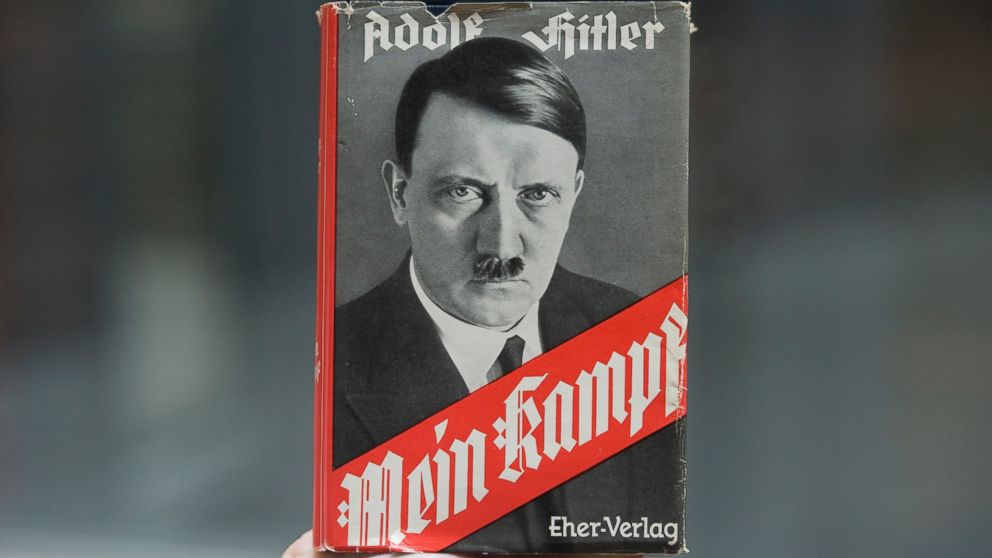Hitler's 'Mein Kampf' Surges in E-Book Sales
Why in the world is Adolf Hitler's manifesto suddenly so hot?

Jan. 10, 2014— -- Adolf Hitler's anti-Semitic political testament "Mein Kampf" is surging up electronic book bestseller lists, even as sales of the printed version have been stagnant for years.
As of Wednesday, two electronic versions of "Mein Kampf" ranked 12th and 15th in the Politics & Current events section of the iTunes book store. On Amazon, Hitler's polemic ranked number one in the Propaganda & Political psychology section. There are currently six e-book versions of "Mein Kampf."
One explanation offered for the surge in electronic sales concerns the relative anonymity offered by e-books as compared to their printed counterparts.
"These are things that people would be embarrassed to read otherwise," journalist Chris Faraone, who wrote about the trend for Vocativ.com told ABC News. "Books that people would probably be a bit more embarrassed to read or display or buy in public, they are more than willing to buy on their Kindle, or iPads."
Faraone believes the phenomenon is similar to that surrounding erotic novel "Fifty Shades of Grey," which in 2012, became the first to sell more than 1 million copies on Amazon's Kindle e-reader.
"'50 Shades of Grey' is something you would probably be embarrassed to read in public," said Faraone, but added that the anonymity offered by e-readers ensures that readers with a latent interest in controversial subject matter can read the books freely without arousing suspicion.
"Let's say you have a latent curiosity, [Mein Kampf] is very present in ebook stores, you don't have to go out of your way to find it, it's a no-brainer," Faraone said.
Hitler wrote "Mein Kampf," while imprisoned following the failed attempt of the then-fledgling Nazi party to seize power in Munich in 1923. Its anti-Semitic themes and racial ideas became the blueprint for National Socialist ideology. It became the most popular book in Germany after Hitler became Chancellor in 1933.
The book has seen a resurgence in popularity in recent years. In 2005, when it was first published in Turkey, it sold 100,000 copies in two months alone, the Guardian reported, citing the book's publishers.
Jewish leaders have expressed alarm that companies would profit from surging digital sales of "Mein Kampf."
"While the academic study of Mein Kampf is certainly legitimate, the spike in ebook sales likely comes from neo-Nazis and skinheads idolizing the greatest monster in history," World Jewish Congress CEO Robert Singer told ABC News in an emailed statement.
"We think that responsible companies shouldn't profiteer from the sales of hate books, or at least should donate the profits to help the victims of anti-Semitism, racism and other like bigotries," he said.
California-based Elite Minds Inc. which publishes the best-selling $0.99 version of Mein Kampf, disputes the idea that the surge in sales is due to right-wing extremists.
"The popularity of the digital Ford translation of Mein Kampf has surged due to academic interest in the subject." Elite Minds President Michael Ford told ABC News in an email.
"With digital readers, no one faces the stigma of having a copy of Mein Kampf on their bookshelf or risks it being seen on a table and having visitors make false assumptions about their reasons for owning it. They can read it in the subway without fear of being mistaken for a racist just because they want to learn about history," Ford said.
The print publication of Mein Kampf remains hugely controversial. Recently, the German state of Bavaria, which owns the copyright to the book, scrapped plans to release an annotated version of the manifesto out of respect for Holocaust victims.




